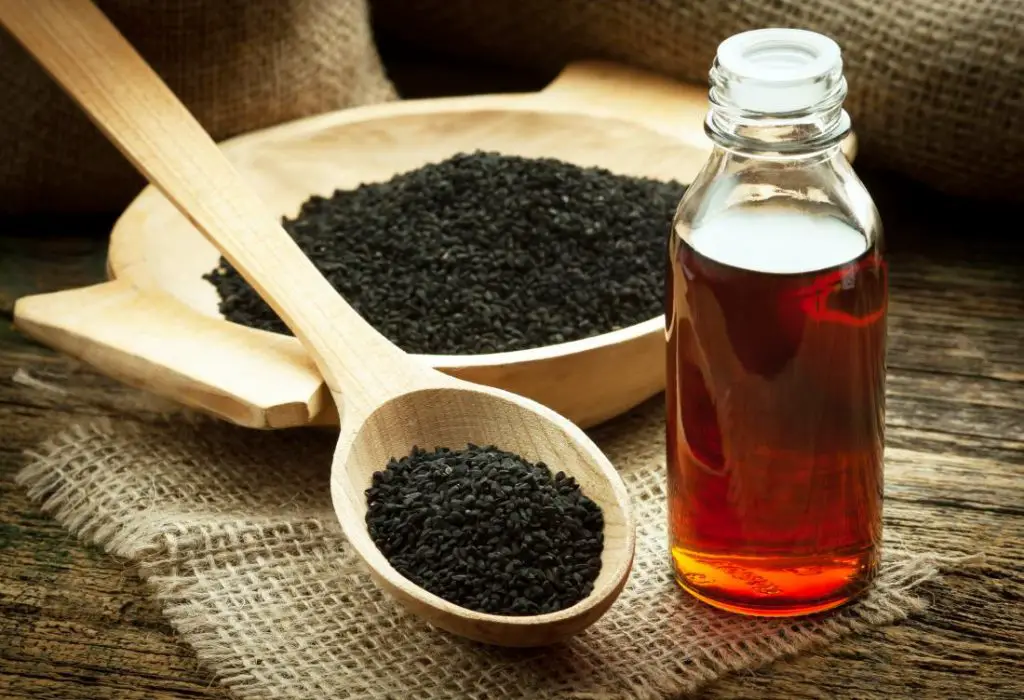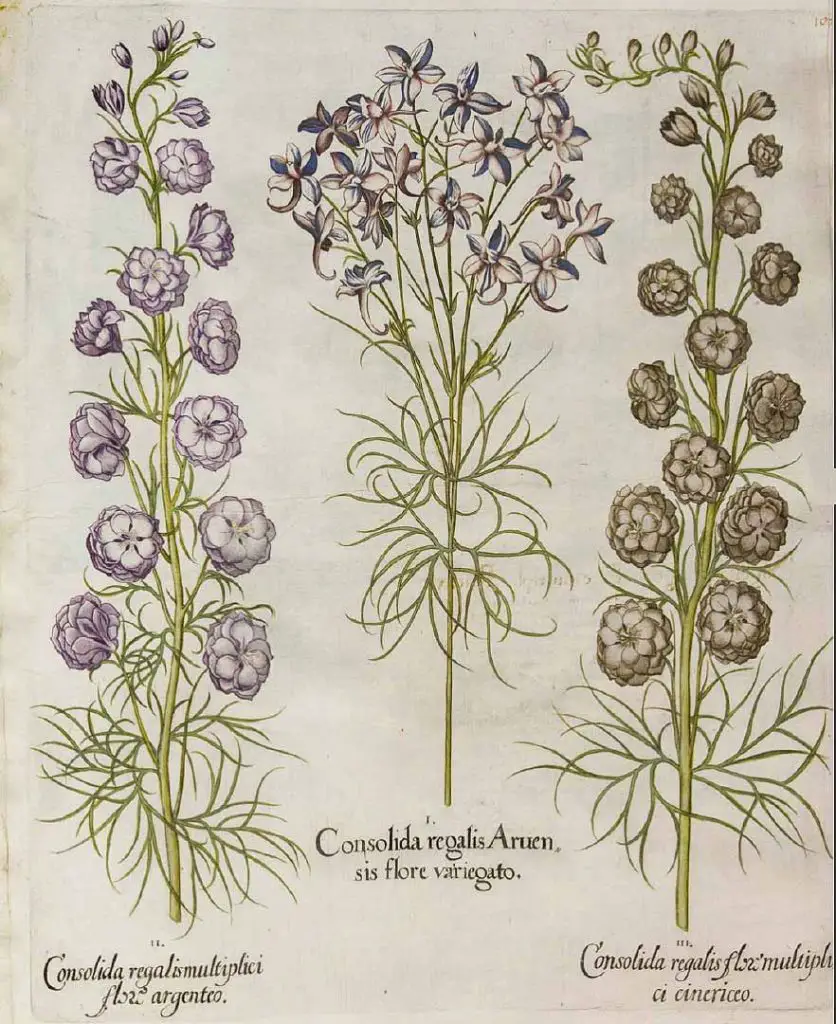Botanical Name: Nigella sativa
Other Common Names: fennel flower, black cumin, black onion seed, black caraway and kalonji
Habitat: Nigella sativa is native to Southern Europe, North Africa and Southwest Asia and it is cultivated in many countries in the world such as the Middle Eastern Mediterranean region, South Europe, India, Pakistan, Syria, Turkey, Saudi Arabia.
Description: Olive leaves are from the common olive tree, an evergreen tree usually 2-10m tall with branched upright stems. The leaves are arranged oppositely in elongated shapes 3-7cm long and 1-2cm wide with pointed tips. The leaves are glossy dark green on the front and silver-green or yellow-brown on the undersides. Small white flowers with four petals bloom and eventually spawn the purple-black or green fruit which is 15-30mm long and 6-20mm wide with a single hard seed surrounded by oily flesh.
Plant Parts Used: The seeds of nigella sativa and their oil have been widely used for centuries for various ailments worldwide.

Therapeutic Uses, Benefits and Claims of Black Seed Oil
Black seed oil derives from Nigella sativa, a small pale purple flower native to Eastern Europe, Asia, and the Middle East. It has been used to heal a laundry list of skin and health issues for centuries. In fact, the Bible mentions black seed in the book of Isaiah, labeling it an abundant commodity rich in its ability to treat nearly every disease, and King Tut was found with black seed oil buried alongside him in his tomb. Traditional Indian medicine traditional systems (Unani and Ayurveda) have it as important. Muslim communities consider it as one of the greatest forms of healing medicine available. It was mentioned that black seed is the remedy for all diseases except death in the Hadith.
Black seed is also known as fennel flower, black cumin, black onion seed, black caraway, or kalonji and has a bitter taste similar to that of oregano or cumin. Nigella sativa is erroneously called “Black cumin” by some. It is not related to black cumin which is from the plant bunium bulbocastanum in the Apiaceae family or cumin (Cuminum cyminum). The sought after seeds and oil for health are nigella sativa which can also be used in cooking to flavor salads, smoothies, and meat dishes. However, the place where black seed oil packs the most punch is when being used to promote health and wellness.
Black seed oil is rich in antioxidants, anti-cancer, anti-inflammatory, and antimicrobial properties, and the oil aids in issues like eczema, immune deficiency disorders, and scar reduction.
Black Seed Oil: Beneficial to Your Health
Black seed oil can act as a natural antibiotic. Its antimicrobial and anti-bacterial properties are strong enough to ward of bacterial infections. In fact, the oil has proven to be an anti-staphylococcal agent powerful enough to work against MRSA, a highly drug-resistant infection.
Below is only a small sample of conditions black seed oil can help treat.
Candida albicans
The antifungals found in black seed oil are so strong they defend against Candida albicans, an overabundance of yeast in the body.
Asthma and bronchitis
Black seed oil has been associated with alleviating symptoms associated with asthma and bronchitis. Its anti-inflammatory agents work to reduce inflammation and irritation in the air passages.
Cancer
Thymoquinone, an anticancer component of the black seed, has long been believed to reduce tumor growth and heal scar tissue from radiation. Topically, black seed oil can be applied to reduce the chances of developing skin cancer.
Black seed oil contains the beneficial fatty acids oleic acid and linoleic acid. Consuming black seed oil has been found to support the reduction of high cholesterol levels.
When applied to the skin of those suffering from rheumatoid arthritis, the anti-inflammatory compounds in black seed oil has been reported to reduce pain associated with the condition.
Male fertility issues
Antioxidants found in black seed oil, especially thymoquinone, can improve sperm count, as well as the overall health of the male reproductive organs, in addition to several other male fertility issues.
Black seed oil can help reduce nasal congestion and other sinus issues associated with allergies with its immune boosting, antihistamine, anti-inflammatory properties.

Black seed oil can control glucose levels, aide in inhibiting glucose’s absorption in the intestines, increase insulin sensitivity in the liver, which, in turn, prevents type 1 and type 2 diabetes.
Obesity and digestion issues
Black seed oil can aid in weight loss and a reduction in body mass index, especially when combined with turmeric. Black seed oil can also lessen symptoms associated with heartburn, indigestion, and dyspepsia.
Black Seed Oil: The Secret to Beautiful Skin
In addition to its ability to combat MRSA and skin cancer, black seed oil is used to treat other skin conditions and issues, as well.
Black seed oil is gaining in popularity as a natural remedy for eczema, a chronic skin condition that causes red, itchy skin accompanied by swelling and blisters. The phytochemicals in black seed oil, coupled with its anti-inflammatory properties can soothe angry inflammation and redness. It also acts as a moisturizer, which can aid in alleviating itchiness associated with eczema.
Psoriasis
It is believed psoriasis may share a connection with leaky gut syndrome. Both are autoimmune conditions that deal with the inability to eliminate foreign entities from the body. For leaky gut, the intestines become permeable and allow unwanted food stuffs to enter the bloodstream. For psoriasis, it is an overproduction of skin cells the body cannot rid fast enough. Both cause inflammation, which is something black seed oil can help reduce and fight against.
As with eczema and psoriasis, symptoms of acne include red, irritated skin, in addition to clogged pores and a lack of moisture control. The anti-bacterial and anti-inflammatory agents found in black seed oil can reduce redness, unclog pores, and hydrate skin.
The Beauty of Black Seed Oil
King Tut wasn’t the only one who knew the benefits of black seed oil. Nefertiti used black seed oil in her beauty regimen, and Cleopatra used the oil when she took a bath. Black seed oil is loaded with vitamins and fatty acids, therefore, making it an optimal addition to any beauty routine, especially for those looking to get away from products loaded with an overabundance of impossible to pronounce ingredients.
Age spots
The anti-fungal and anti-bacterial properties found in the oil can be used as an anti-aging remedy. By applying the oil topically to acne and age spots, it can reduce discoloration, redness, and irritation.
Wrinkles and fine lines
The fatty acids in the oil can plump fine lines and wrinkles.
Black seed oil works to improve hair health, as well. The oil contains nigellone, an antihistamine, that can fight dandruff and hair loss associated with alopecia.
Black seed oil is safe to ingest or apply, however, an allergic reaction is always possible. Try a patch test on the skin prior to using as a skin remedy or consult your naturopathic or regular physician prior to consuming, especially if already taking other medications. Those who are pregnant, have blood disorders, or low blood pressure should also use caution, as black seed oil can slow or stop uterine contractions, reduce blood clotting, and lower blood pressure and blood sugar.
Related Products You May be Interested in

Pure Black Seed Oil – Immunity – Anti-Inflammatory – Antimicrobial – Antioxidant – Heart & Digestion Health – Cold Pressed Nigella Sativa Black Cumin Seed
from Vitalite Now
The Herbal Resource may receive a small commission from sales of specific product (but at the same price to you).
Dosage and Administration
Nigella sativa is typically taken by mouth as a ground seed or an oil (either tincture or capsule). For most conditions, 0.5 – 2g of ground black seed for 12 weeks. Alternatively, 100 – 500mg of black seed oil taken twice daily for a month or two. Applied to the skin typically as a gel or oil, every day for one to two months.
Possible Side Effects and Interactions of Nigella Sativa
Black seed when taken by mouth in small doses or as food flavoring is likely safe for most people. There has not been widespread studies around medicinal or more significant amounts over longer periods of time. Some have reported an allergic rash when taken orally or on the skin. It has also been reported to cause upset stomach, vomiting and constipation in some. It might increase seizure risk in some. Black seed may slow clotting and reduce blood pressure.
Nigella sativa taken in small amounts over a short period is likely safe during pregnancy. Larger amounts and taking over longer periods is likely unsafe and a physician should be consulted first.
Bleeding disorders: Black seed might slow blood clotting and increase the risk of bleeding. In theory, black seed might make bleeding disorders worse.
Diabetes:Black seed might lower blood sugar levels in some people. Watch for signs of low blood sugar (hypoglycemia) and monitor your blood sugar carefully if you have diabetes and use black seed.
Low blood pressure: Black seed might lower blood pressure. In theory, taking black seed might make blood pressure become too low in people with low blood pressure.
Surgery: Black seed might slow blood clotting, reduce blood sugar, and increase sleepiness in some people. In theory, black seed might increase the risk for bleeding and interfere with blood sugar control and anesthesia during and after surgical procedures. Stop using black seed at least two weeks before a scheduled surgery.
References
https://www.ncbi.nlm.nih.gov/pmc/articles/PMC3642442/
“The Health and Beauty Benefits of Black Seed Oil”
“What’s the Connection Between Leaky Gut Syndrome and Psoriasis?”
“9 Proven Black Seed Oil Benefits that Boost Your Health”
Very interesting article I think is best to have foot notes for the reference